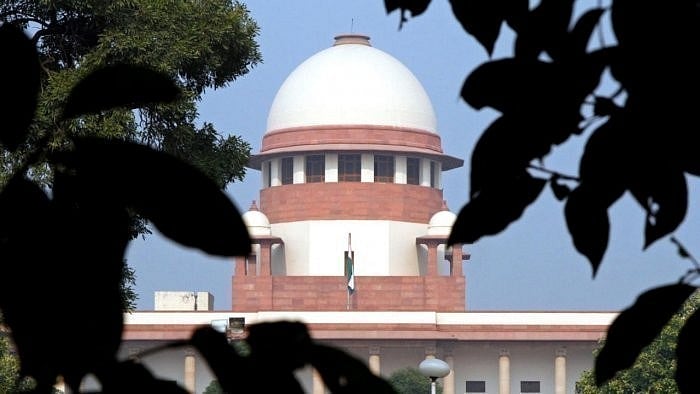
The Supreme Court of India.
Credit: PTI File Photo
New Delhi: The Supreme Court on Monday said in order to quash an FIR, what is required is the examination of the complaint as a whole without examining the merits of the allegations; desisting from a detailed inquiry or meticulous analysis of the material nor an assessment of the reliability or genuineness of the allegations.
A bench of Justices Sudhanshu Dhulia and K Vinod Chandran said, a complaint can be quashed when the allegation, even when taken on its face value and accepted in its entirety, does not prima facie constitute any offence or make out the case alleged against the accused.
The court allowed an appeal filed by Aaditya Khaitan alias Aditya Khaitan and others against the Jharkhand High Court's refusal to quash a complaint for offences alleged under Section 406, 420, 467, 468 and 471 of the IPC.
The matter related to sub-letting a contract of NBCCL despite a restrictive clause by the accused.
The appellants contended the registration of the FIR was a strong arm tactic to obtain recovery of money allegedly payable under a contract, for which arbitration proceedings are initiated.
They said the arbitration proceedings have also been stayed due to the pendency of the insolvency proceedings under the Insolvency and Bankruptcy Code, 2016 in which a moratorium has been ordered by the National Company Law Tribunal, Kolkata bench by an order of April 29, 2022 in Bank of India Vs McNally Bharat Engineering Company Limited.
They submitted Deputy General Manager of M/s National Building Construction Corporation Limited also filed a similar application, in which the FIR against him was quashed. But the High Court refuses to quash the FIR against them.
After hearing the counsel, the bench said, even if it assumed that the sub-contract was without a consent from the principal and that the restrictive covenant was suppressed from them, it would only entail an action by NBCCL as against the first accused-company.
Further, even if there is a restrictive covenant and the contract of the NBCCL was terminated for reason of the sub-lease, that alone cannot absolve the first accused company from satisfying the bills raised by the complainant, if it is in accordance with the contract they entered into, the court said.
The bench found the complainant has taken steps for recovery of the amounts due, which unfortunately has been stalled by reason of the moratorium ordered by the NCLT. "The complainant would have to take proper recourse and avail its legal remedies for recovery of money, which is the crux and essence of the allegations as we discern from the complaint, read in its entirety," the bench said.
The court found no any criminality arising from the allegations.
"Prima facie, the allegations do not constitute any offence or make out any case against the accused persons," the bench said.
The court held that the High Court erred in not invoking the power under Section 482, CrPC.
